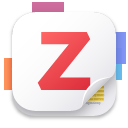Music Citation Guide: Citation Managers
Start Here
Do I need use a citation manager?
You do not need a citation manager for:
That 10-20 page paper for your history or seminar classFor a paper of this length, you will (probably) examine 20-30 sources and only end up using 10-20. |
However, you should seriously consider using a citation manager for:
Your thesis or dissertationThe sources you'll juggle when completing a large research project can get out of control, and fast. And whereas you will breeze through sources quickly when writing a basic term paper, with a dissertation you're going to spend hours, days, months, weeks, and maybe even years working with the sources. For recommended citation managers, see Options #2 and #3. |
3 ways to manage your citations
1. A Blank Document
Wait...what?
Citation management tools, like Zotero and Endnote Basic, take time to learn and can actually slow your writing and research down. Sometimes, the simplest and best option is to open a Word, Google, or Pages document and store all your citations there.
Many databases, including the Library Catalog and WorldCat, will generate formatted citations that you can simply copy and paste into a document and tweak to include in your paper.
I do recommend keeping a separate document from your actual paper for your bibliography. It's just easier to format and organize a two page list that is self-standing than wrangling with page breaks that are constantly changing in a 15-20 page paper.

2. Zotero
Zotero is a free, open-source citation manager. It is available as either a web add-on in Firefox, or as a downloaded application with grab buttons for all the major browsers.
Why should I use it?
People choose Zotero over other citation managers because it's completely free and has a pretty gentle learning curve. Its also great at grabbing information from not just databases, but the web itself. Overall, Zotero is a nifty little program that can do pretty much anything that larger, vendor-owned products can do.
3. Endnote Basic
Endnote Basic is a web-based citation tool derived from the paid application, Endnote (from Thomson Reuters). You can get an Endnote Basic account for free with your email address.
Why should I use it?
People choose Endnote because it's one of the oldest citation tools of the market and therefore, has some name recognition. It's usually recommended as the speediest citation tool in terms of how it grabs citations, though the learning curve is a bit steep. Endnote is often regarded as the de facto citation tool for science disciplines, but it's also used in other academic fields. However, while Endnote can grab lots of different citations from different places, it is primarily developed to work with databases and articles.
Downloading Endnote (not Basic)
If you are a faculty member or graduate student, you can download the full, paid version of Endnote via the University of Iowa. The full version of Endnote is a powerful tool, but only if you take the time to learn how to use it. If you intend to use the full version, I highly recommend finding a training course (there are several offered through the Libraries) that can show you how to use Endnote for more than basic citation grab-and-go.